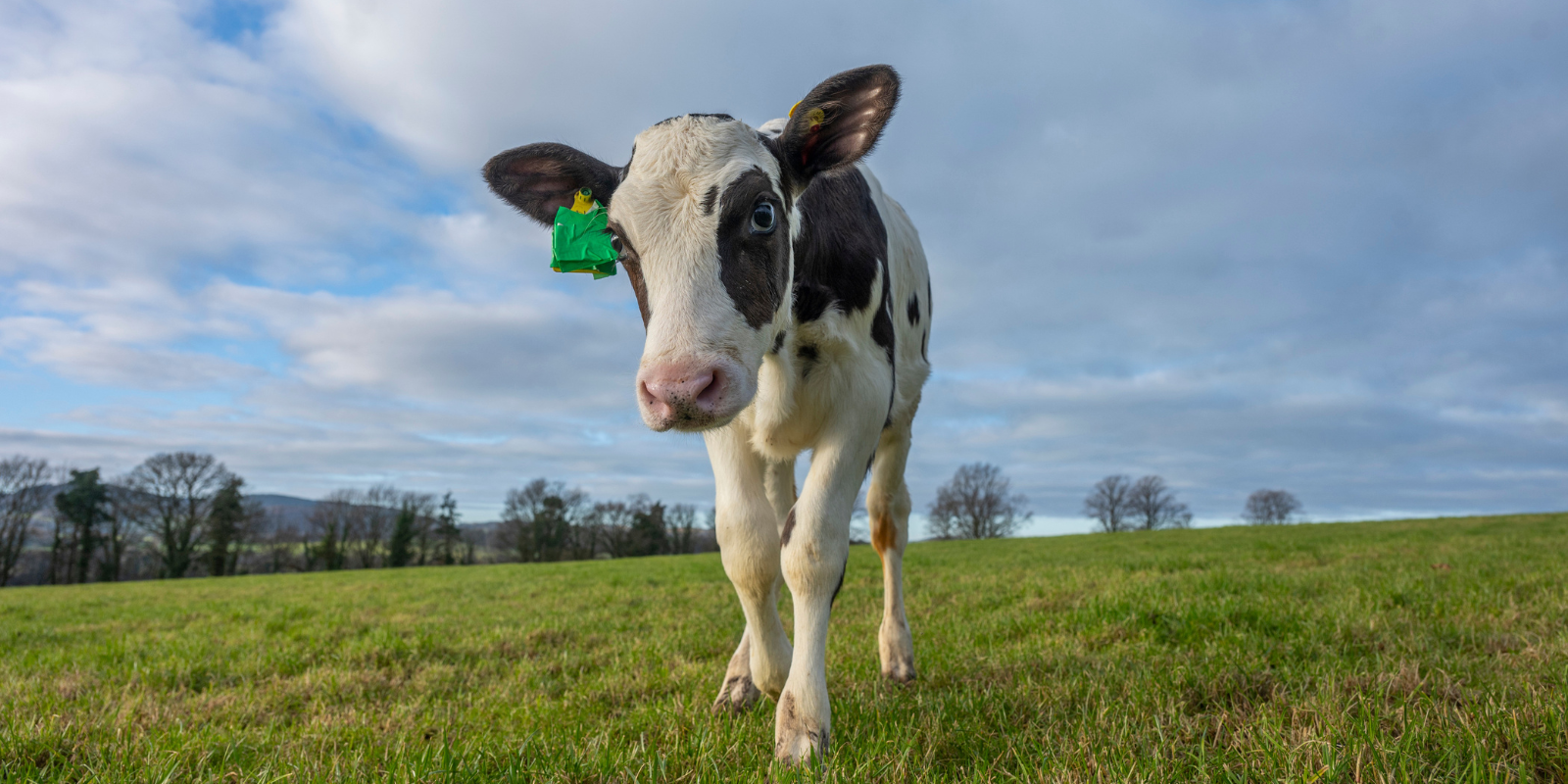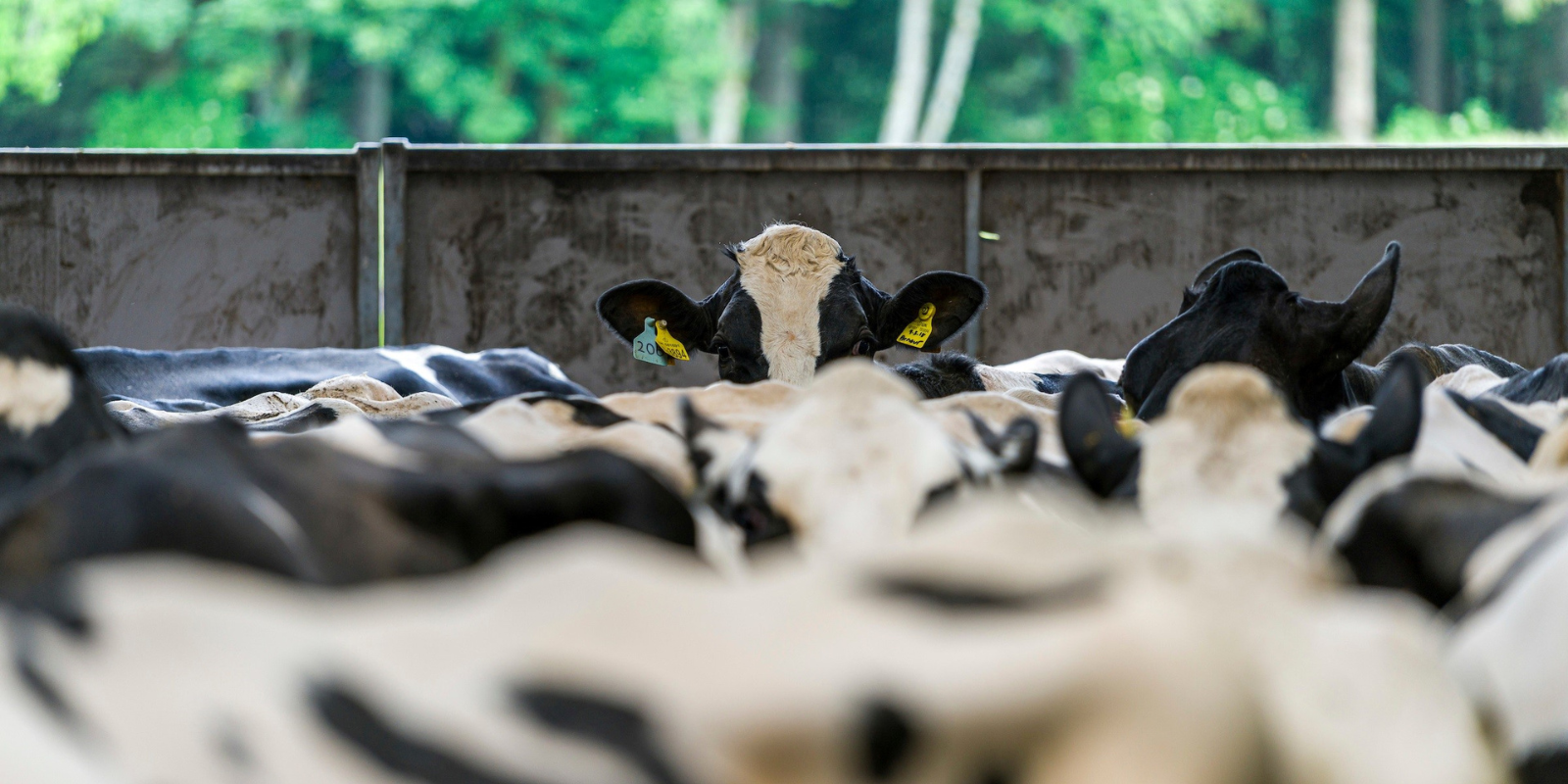
Scotland's Rural College
Scotland’s Rural College (SRUC) first won a Prize in 2017 for a dairy cattle genetics project over 40 years in the making.
An Alumni Story: Professor Mike Coffey and Professor Wayne Powell
Professor Mike Coffey and his team’s research with the Langhill dairy herd, championed by Principal Professor Wayne Powell, showed farmers around the world that selective breeding can significantly increase milk yields and reduce methane emissions. Here, Mike and Wayne explain the impact of the Prize.
Wayne: When we first applied, it was about ambition, confidence and realising our potential. It was about considering our work in a global context, and it was about giving the whole team involved in this very long-running experiment a voice.
Mike: We’ve spent decades defending this experiment to keep it going – it’s the longest running genetic selection trial in the world – and it feels great when people recognise that. People mention the Prize both in the UK and around the world, sometimes in the most unlikely of places, and we always say that it’s the jewel in SRUC’s crown.
When I came to London with my partner Eileen and children for the Presentation Ceremony at Buckingham Palace I felt an incredible sense of pride. I realised that I was part of something that had been recognised at the highest level. It was joyous.


Wayne: I think for SRUC it was a turning point and actually a big factor in motivating us to pursue degree awarding powers.
I can also think of two great examples of where the Langhill herd and the Prize can be directly traced to additional investment for SRUC. The first was a £21m investment from the UKRI Strength in Places Fund in 2021 to support dairy farming in South-West Scotland and Cumbria.
That funding was then used to leverage a further £8m from the Borderlands Inclusive Growth Deal in 2024. Collectively, they represent a huge investment in southern Scotland.

Mike: Wayne and I feel like we’ve been pushing genetics uphill for 40 years. But all of a sudden we found ourselves at the peak and now we’re running down the other side with this big boulder following us, because the demand for genetics now is quite incredible. The Prize really helped to put a spotlight on what we do.
Breeding is a long-term process, so it can be difficult to convince funders to keep going. And you don’t get regular Eureka moments to help keep you motivated. But what’s wonderful to see is that after winning the Prize the experiment is mushrooming into much more than it was originally intended to be.
The people who set up the project in the 1970s had no idea about genomics, genotyping and DNA but they collected blood samples because they thought it might be a good idea. Subsequently, we genotyped the cows and entered this whole new area. We now want to ensure that the Langhill experiment can enable us to answer questions in 30 years that we haven’t even dreamed up yet.

Wayne: Looking back, I think one of the great things about the Prize is that it gives smaller universities and colleges like us a chance to shine. It’s been a huge motivator for us. It changed the dynamic of the relationships we have with funders and other external organisations. And it gave us a reason to take stock and celebrate some of the great work we do.
